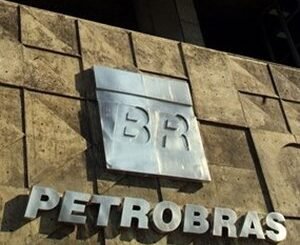(Bloomberg) – Big Oil has a powerful ally in the White House, but the first quarter of Donald Trump’s presidency was a real test for companies’ plans. The rest of the year could be even tougher.
The U.S. leader’s desire for lower crude prices and his disruption of the global economy with trade tariffs is stressing the industry’s finances, calling into question both shareholder returns and drilling plans.
Of the five global oil majors that report earnings this week, bp Plc is first in line and the most exposed to recent volatility. Even before Trump’s trade war, the company’s debt was rising and it had told investors to expect a reduction in quarterly share buybacks of as much as $1 billion.
The struggling UK company is not a total outlier. Chevron Corp.’s investor payouts are under pressure, with analysts expecting the oil major to trim its buyback 6% after the price of a barrel of crude plunged into the $60s. All of the majors, including Exxon Mobil Corp., Shell Plc and TotalEnergies SE could be tempted to slow spending on new projects as long as Trump is roiling markets.
“For the trade war at the moment, it probably makes it a bit harder to make any investment decisions,” said TD Cowen Managing Director of Energy Equity Research Jason Gabelman. “It wouldn’t be shocking if you see some of these project decisions get pushed out.”
Big Oil’s unease was on clear display in Oklahoma City last week, when Occidental Petroleum Corp. Chief Executive Officer Vicki Hollub told a room full energy, technology and government officials that for all its passion for oil and gas, the Trump administration lacks a holistic energy plan.
Hollub was confident the president and his team will pull a plan together. Meanwhile, companies are already changing their investment plans for 2025 to bolster their balance sheets. To maintain its share buyback amid declining cash flow, Italy’s Eni SpA said it had taken action to reduce spending. Var Energi ASA, Norway’s third biggest oil and gas company, said it could slow down some project developments.
Analysts expect other companies to prioritize their share buybacks and dividends over capital expenditure.
The majors faced a reality check toward the end of 2024, when crude plunged and profit margins from making fuel and chemicals faltered. The situation worsened this year, when initial optimism about Trump’s “drill baby, drill” agenda turned into gloom as his trade war — combined with unexpected supply hikes from the Organization of the Petroleum Exporting Countries and its allies — sent prices tumbling to four-year lows.
The five supermajors — Exxon, Chevron, Shell, TotalEnergies and bp — are expected to report combined profits of $22.5 billion for the first quarter, 11% higher than the previous three months due to slightly higher oil prices, but about half the levels seen in 2022, according to data compiled by Bloomberg.
This article was originally posted at www.worldoil.com



Be the first to comment